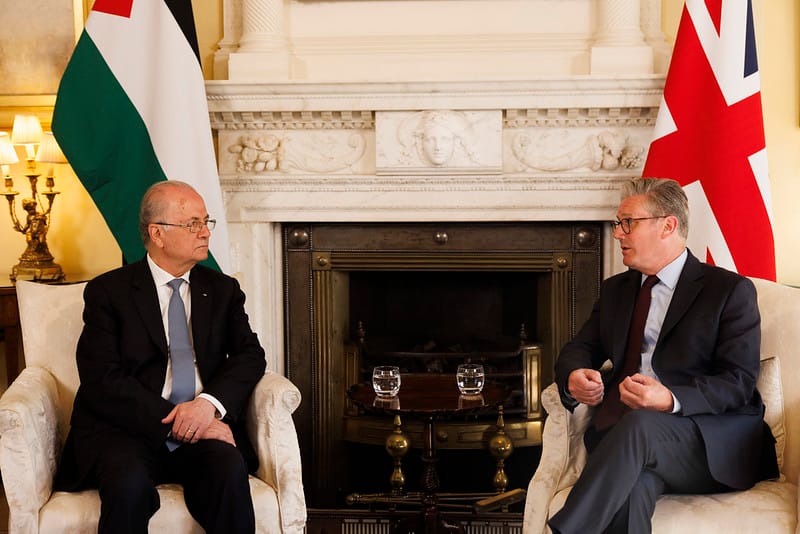
The question of assisted dying has a particularly Jewish dimension in my head, probably because the recently-retired rabbi of the shul I grew up in, Jonathan Romain, is also a prominent campaigner in its favour. As the former chair of Dignity in Dying, Romain has drawn on his experience supporting people at the end of life to argue that “letting go of life can be the right and moral decision. There is no sanctity in suffering, particularly as we die.” He’s also criticised the “outdated theology that is anti-choice and forces people to suffer against their will, completely out of step with 21st century Britain.”
This position puts him at odds with other Jewish voices who have been critical of the bill now before the House of Commons. Chief Rabbi Ephraim Mirvis this week wrote to MPs stating that the proposed legislation “presents a moral challenge to our society which I believe should trouble those of all faiths and none” and arguing that “once the law itself concedes that actively taking a person’s life is justifiable, we cross a moral Rubicon.” He also co-signed a letter to The Guardian with a number of other religious leaders which argues that “the most effective safeguard against life-threatening coercion or abuse is to keep the law as it is.”
Jews disagreeing is hardly news. In this case, though, the debate is a genuinely complicated one. I personally have mixed feelings, which means this newsletter isn’t going to come down hard one way or the other like usual. The case for allowing those whose lives are ending anyway to make that process easy and pain-free, if they so choose, has always seemed self-evident to me, and yet the discussion around this bill has made clear a range of important concerns, its quick procedure through Parliament aside.
Disabled People Against Cuts, the anti-austerity disability rights group, has pointed out that “our support services – palliative care, the NHS, social care and mental health – are currently broken,” and warned against a situation in which “assisted suicide plugs gaps”. Others have cited the fact that elderly people and those in need of care often consider themselves a “burden”, which could influence their choice to die. Assisted dying services in other countries have been used to remedy states including poverty and anorexia, with the scope of those services repeatedly widened after being made legal. There are some stark statistics in this Novara Media article about the proportion of people in Canada (where assisted dying is legal) who believe that homelessness is good grounds to request euthanasia. There are safeguards in the British bill, but it seems impossible to prevent some cases in which death is seen as a preferable alternative to struggling with the absence of comprehensive, accessible and well-resourced support – unless the government takes simultaneous steps to make that support available, which it presently is not. But is it fair to make those suffering a drawn-out terminal illness in the current circumstances wait until everything else is fixed?
I don’t know. Jonathan Romain is obviously right that ancient theology shouldn’t be the basis for modern policymaking, but in want of a definite opinion I find it interesting to see what scripture says. Halacha seems pretty unequivocal: Daniel Sinclair, a professor of Jewish law, writes that “the preservation of human life is a cardinal commandment. Both suicide and self-endangerment are forbidden (Genesis 9:5; Deuteronomy 4:15). Maimonides explains that our bodies are Divine property and any deliberate attempt to destroy them is prohibited.” There appears to be some evidence for nuance on the subject of death as a form of relief in the Talmud – one episode finds Rabbi Yehudah Hanasi’s maidservant praying for her long-suffering employer to die, and, finding her prayers countered by those of the Sages, who are praying for him not to, throws a jug of water on the ground to distract them, allowing the rabbi’s soul to depart – but allowing death to occur is obviously different to the administration of death through lethal medicine proposed by this bill.
There is another relevant principle, introduced to me this week by a Vashti colleague, which I personally find more useful in this debate. Pikuach nefesh, often translated as “saving a life” but meaning something closer to “saving a soul”, holds that any commandment can be broken to do so. In this colleague’s analysis, given the soul is separate in Judaism from the body, it could be argued that there are cases in which helping someone die, on the basis of their considered, informed choice, made surrounded by sufficient care, is an act of soul-saving. But when the despair of a soul – and the choice to die – in the face of disability, illness, old age or otherwise difficult circumstances is caused by a lack of care and other resources, the soul has not been saved.
Whichever way the bill goes today, the discussions around it have centred certain issues in modern Britain that are too often sidelined. One is the experience of disabled people, for whom non-consensual death is often too readily “assisted” by government policy. Another is the desperate state of care services, including palliative care, which, as Matty Hall writes, is “often funded by selling second-hand clothes and sponsored fun runs”. What pikuach nefesh suggests is that we are duty-bound as Jews – and as humans – to fight for better public services, and for material improvement to people’s lives. Any recourse to assisted death must be an option – not an excuse for poor governance, or a last resort. ▼
Francesca Newton is an editor at Tribune and Vashti Media.
Author

Francesca Newton is assistant editor at Tribune and an editor at Vashti. She currently lives in Melbourne.
Sign up for The Pickle and New, From Vashti.
Stay up to date with Vashti.



